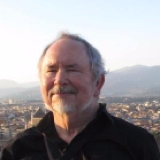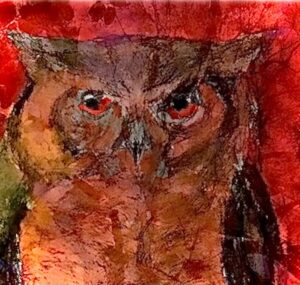“A democratic rant.” — Ed.

We face the primal situation that we need those closest to us to have an intense value and meaning that cannot be extended to others. As democratic citizens, or tribal members, or anyone else, we must live with the uneasy emotions of this.
What if losing an election means losing power, money, and identity? As Heather Cox Richardson says about the founding of the United States, white male property owners knew that elevation of women or slaves or children could only come with a loss of their own power and privilege. They were right. This problem also manifests in environmental terms. If energy companies stopped burning fossil fuels they would have to leave $30 trillion in the ground. If people heard the screams of pigs in slaughterhouses, and decided to order something else on the menu, they would have to give up the taste of pig-beings’ flesh.
When any powerful group is challenged to become more democratic, its members initially regard this as a demand for sacrifice on their part. If culture changes enough, people may begin to think about what they might be willing to “give up,” rather than “sacrifice.” Do citizens of France or Ireland resent their egalitarian health care systems? They do not. I’ve lived in those countries and only heard pride expressed.
As discussion of an issue becomes possible, partisans will thrash out solutions, and voters will decide some form of relative fairness. This may be an ideal process, but it can never be a calm and entirely reasonable one. Groups nurture emotional lines in the sand.
If racism or misogyny run deep enough, even the discussion of real democracy is resisted. In this time of wealth inequality, domestic terrorism, and mass shootings in the USA, one hardly knows what to say. The people who act violently against rival groups have been “culturally created” by generations of hate: from 17th-, 18th-, and 19th-century slaveholder’s tropes to Woodrow Wilson’s showing the racist film, “The Birth of a Nation” in the White House; to Father Coughlin’s 1930s radio broadcasts of anti-Semitic and pro-Nazi views; to Fox News’ recent settlement of $787.5 million for defaming Dominion Voting Systems.
Sometimes a more just culture can be achieved through a sudden, jarring, new law. For example, most people adjust pretty quickly to limits on the taking of animals and fish and come to feel that such laws are ethical, sustaining for their favored species, and important for one’s reputation. In other cases change to a culture must come slowly, sometimes by the older generation dying out, as in the bitterness over removing Confederate statues.
No matter what else we give up in the name of democracy and justice, we can’t give up love. From within that core experience we must see strangers and even “others” relatively abstractly. Reflecting on this might give us insight into the emotions of the “non-negotiable” anti-democratic groups. It might startle us out of a comfortable sense that democracy should seem reasonable. It will seem reasonable in a democratic culture.

You, Under the Sun
An owl shaman saw it coming.
Math, language, art for wearing and walls.
Once you can measure a log for making a canoe,
memorialize battles and dinners, chant to suck in
animal mojo, you have acquired an abstract world.
It glows inside.
You are living with tribal artists and musicians,
and with warriors. The shaman tells you what to
fear, how to pray, what to pay. Now the world is rustling,
shhh, with creatures and their magics. It’s a heavy world inside
of you: burden of calculations, genealogy, unseen powers.
Obligations, expectations.
You are assigned something called your role. Perform or die.
All this happened one million years ago, possibly two million.
Not much has changed since then. Your head is heavy with
knowledge and questions. You are filmed and broadcast
everywhere. If you have the luck to please your gods and tribe,
when darkness falls you reach out for one person‘s hand.
Does that person love you for the animal you are?
Not just for your busy heart and machinations.
You need a connection with a person like yourself,
not your gang or nation. Those things and most people are
abstractions and deep strangers. Your only one can take you back
those million years and more.
With a smile or touch you are made whole.
You know that if your public game is hollow, and if your public cares
nothing for you, it doesn’t matter because your only-one animal
traveler knows you true. If you can’t return to the old prehuman,
to trust and love one person, you know you’re nothing but your
thoughts and weapons. You know that transcendence means the touch.
Leave a Reply